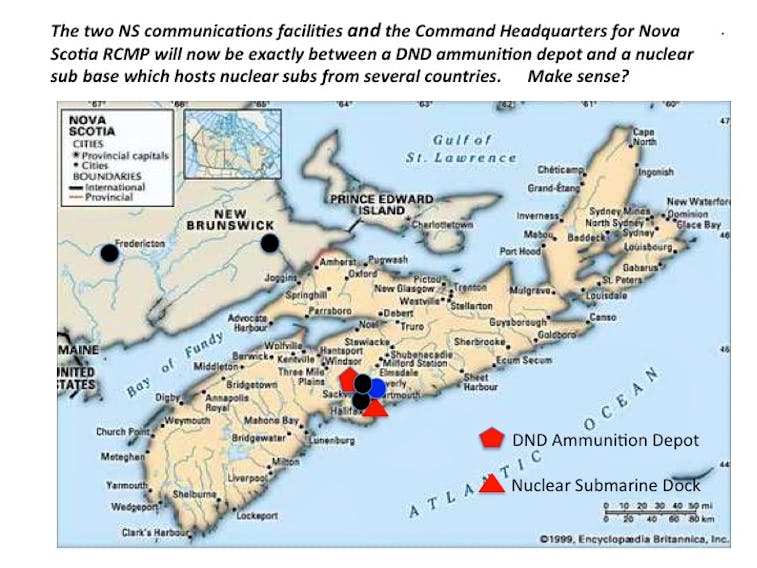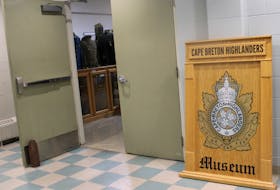TRURO, N.S. — This week’s “horrific explosion” in Lebanon is precisely why the RCMP should not base its 911 emergency communication operations in one location, former MP Bill Casey says.
“The proposed RCMP plan to eliminate ‘geographic separation’ by locating both Nova Scotia major police communication centers in one community fails those international standards and puts all Nova Scotians at unnecessary risk,” the former Cumberland-Colchester MP said, in response to the massive nitrate explosion in Beirut that killed approximately 140 people and injured 5,000 others.
“It is a sub-standard emergency communications system.”
The RCMP plan to dismantle its communications centre in Truro and relocate it to its Nova Scotia headquarters in Dartmouth.
Casey and a number of local elected officials have long been advocating against the plan because of the danger they say it poses if something should happen to shut down communications in the Halifax area.
Casey said what happened in Beirut is an example of why the 2004 RCMP Expert Panel rejected Halifax Regional Municipality as the sole location for the RCMP 911 emergency communication center in Nova Scotia.
“Disasters like the horrific explosion in Beirut are also why all leading authorities in emergency communications require there to be ‘geographic separation’ between emergency communication centers,” Casey said.
Such disasters are also why “… all leading authorities like Federal Emergency Management Agency (FEMA) and the National Emergency Number Association reject locations near dangerous facilities,” he said. “A quote from the FEMA Manual says that emergency communication centers should not be ‘near hazardous materials sites or nuclear power facilities’.
“The proposed Dartmouth location is exactly between the Department of National Defense Ammunition Storage facility and the Canadian Forces Base Shearwater nuclear submarine dock in Dartmouth. This is the ultimate ‘hazardous materials site’ and the sub base hosts nuclear subs from Britain, U.S. and France,” Casey said. “Under the RCMP plan, both emergency communication centers and the RCMP Headquarters would all be in the same community which would mean a total province-wide breakdown of emergency communication and emergency leadership at the time that they are needed most.”

He said that was precisely why, following an extensive study in 2004, that the RCMP located its 911 emergency communications center in Truro, to ensure that Nova Scotia had two emergency centers with geographic separation and one was not near the hazardous material sites and nuclear sub base in Dartmouth.
“The RCMP plan is a sub-standard emergency communications plan that does not meet any international standards for 911 emergency communications and this decision should be reversed,” he said.
“Ask yourself, does it make sense to concentrate all of the Nova Scotia police emergency communication and police leadership in one community?” Casey said. “This decision was made to fill some empty office space in Dartmouth and puts RCMP office preferences as a higher priority than the safety of Nova Scotians.
“I urge all politicians at all levels to be informed about the risk and speak out against this dangerous RCMP move if they agree that Nova Scotia should not have all of our emergency eggs in one basket.”
Truro Mayor Bill Mills, Colchester Mayor Christine Blair, Millbrook First Nation Chief Bob Gloade and Cumberland-Colchester Lenore Zann have all previously echoed Casey’s sentiment.

“He makes a good point,” Mills said, on Friday, of Casey’s position.
“I hate to piggyback on a tragedy like the one in Beirut but it does drive home the reality of the day that we live in. I look at the devastation over there and it was in a port area and when you look at where the headquarters for the RCMP is in Burnside, it doesn’t take long to put two and two together, and this is a definite possibility here.
“Bill has been saying it all along,” Mills said, of Casey’s expressed fears about the proximity of the headquarters to the munition’s sites and nuclear submarine base.
“What if something were to happen and you merge your two communications centres together? We just saw what could happen with the scope of the devastation in Beirut. Hopefully it never happens. But it could happen in Halifax and do what we’ve been saying all along – disable our communications system,” Mills said.
“Everything that Bill has brought up consistently has a reason to it and for officials not to pay attention to that, I think they’re making a huge mistake.”









